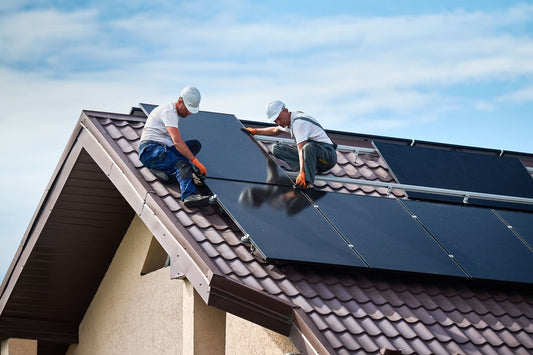New regulations on feed-in tariffs and smart meter costs: What will change from 2025


Starting in 2025, important changes to German energy law will come into force, affecting both the feed-in tariff and the control of photovoltaic systems. One of the key changes is that new solar systems will no longer receive a feed-in tariff if the electricity price on the exchange market is negative. In addition, the costs for installing and operating smart meters will increase, both for mandatory and voluntary installations. Furthermore, the control requirement will already be introduced for smaller PV systems with a capacity of at least seven kilowatts.
These reforms were passed in the Bundestag by the SPD, the Greens, and the CDU/CSU to stabilize the power grid and, in particular, to avoid high feed-in peaks. The most important measures include mandatory remote control of smaller PV systems, the elimination of feed-in tariffs in the event of negative electricity prices, higher costs for the installation of smart meters, and simplifications for the direct marketing of solar power. The Bundesrat (Federal Council) must still approve the changes before they take effect in 2025.
Control obligation for smaller solar systems
Starting in 2025, even smaller photovoltaic systems with a capacity of seven kilowatts or more will be required to be controllable. The aim of this regulation is to prevent excessive electricity from being fed into the public grid during peak demand periods, which could lead to overload. Grid operators should be able to reduce feed-in if necessary.
Private balcony power plants and systems that do not feed electricity into the grid are exempt from this regulation. New solar systems whose operators do not have a smart meter installed are only allowed to feed 60 percent of the energy they generate into the grid. The reform package stipulates that households with high electricity consumption or systems with a capacity of over seven kilowatts will be given priority when installing smart meters.
Increase in smart meter costs
The costs of smart meters are rising, both for mandatory and voluntary installations. A compromise between the political parties stipulates that households with an annual consumption of 6,000 to 10,000 kilowatt hours will have to pay an annual fee of €40 for meter operation, instead of the originally planned €20. The one-time fee for early installation of a smart meter will also increase from €30 to €100, and the running costs for voluntary smart meters will increase from €20 to €30 annually.
In addition, households with controllable consumption devices such as solar panels or wall boxes are charged additional fees for the installation and operation of the control devices. Meter operators may charge a fee of up to €50 per year.
Adjustment of the feed-in tariff
A significant change concerns the feed-in tariff. If there is an overproduction of solar power on sunny days, leading to negative electricity prices, operators of new systems will no longer receive compensation for the electricity fed into the grid. Instead, they are required to store the excess electricity or use it themselves. This regulation is intended to reduce pressure on the grid and conserve public funds for promoting renewable energies.
Despite this change, operators of photovoltaic systems will continue to receive fixed remuneration rates for the feed-in of solar power, which will amount to 7.95 cents per kilowatt hour for systems with a capacity of up to 10 kilowatts that come into operation from February 2025.
Direct marketing of solar power
Another option for solar plant operators is direct marketing, in which surplus solar power is sold directly on the exchange. This reform is intended to make it easier for small PV plant operators to offer their electricity through direct marketers instead of using the statutory feed-in tariff.
However, an originally planned requirement for direct marketing for medium-sized solar systems with a capacity of 25 kilowatts has been suspended for the time being. Direct marketing remains an attractive option for operators who want to benefit from market conditions.




